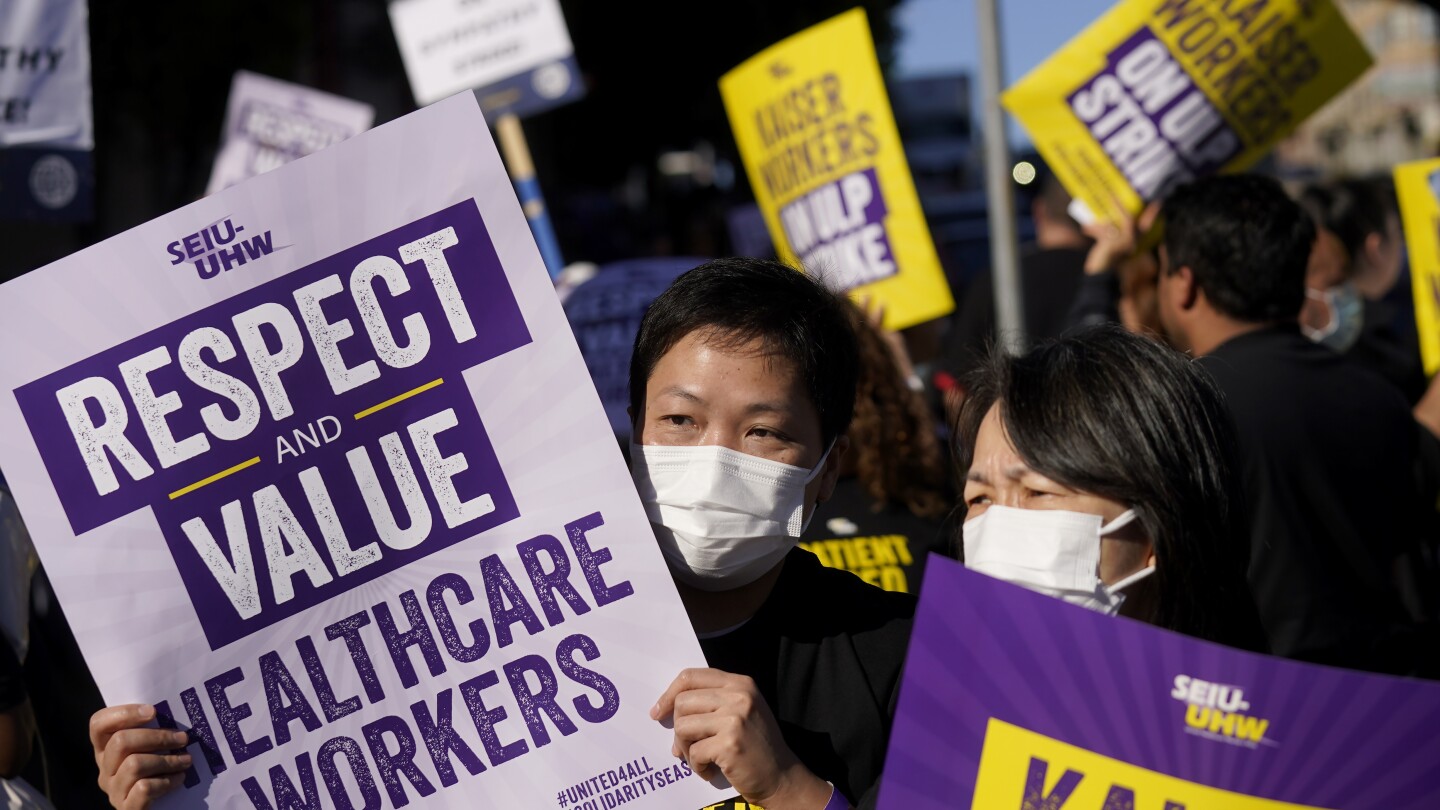It’s been a big year for labor organizing in the U.S. And from auto production lines to Hollywood, all eyes are on strikes taking the world of work by storm.
The boiling point we’re seeing today comes amid soaring costs of living and rising inequality, including growing pay gaps between workers and top executives. Now, thousands of workers who were asked to make sacrifices during the pandemic even as corporate profits soared are asking for better pay and protections — and walking off the job if progress isn’t made in heated contract negotiations.
At least 453,000 workers have participated in 312 strikes in the U.S. this year, according to Johnnie Kallas, a Ph.D. candidate and the project director of Cornell University’s Labor Action Tracker. This year’s work stoppages have spread across multiple industries — including transportation, entertainment and hospitality.
Here’s a rundown of some of the largest strikes taking place in the U.S. today.
Natural reaction to being treated like disposable dirt for so long. We would all like the complete benefits of our total productivity.
Still amazed nothing happened during covid when they dropped all the heros stuff 2 weeks in
People were scared. Layoffs were happening. Threats of layoffs were happening. At the beginning people were thankful to have steady income and some financial security.
Then corporations sold us on the “we’re all in this together” which bought some time until the yearly profits started coming out showing how much we weren’t all in it together.
People are finally at a breaking point. Either financially or socially. It’s not easy to risk it all. Especially when the corporations are willing to throw hundreds of millions of dollars at making sure you don’t succeed.
The fact that there are enough simultaneous strikes going on to require a list makes me giggle with glee.
deleted by creator
Presidential party =/= ruling party
The Democratic party makes better decisions to keep the country functioning for the most part, and may help the working class more than the opposing party by sometimes increasing welfare, access to healthcare, and civil/human rights, but they are both firmly beholden to the elite in the US that exploit the working class. The dems have had the presidency, but it’s been rare that either party has a large majority control of government, so most progress is stalled by the opposing party.
Like someone else mentioned, if you are from Europe, it helps to think of both of our parties as right-wing parties, or center to center-right and right.
There’s no simple answer to your question, just like there’s no quick solution to the problem of inequality. But one premise you’ve mentioned isn’t quite correct. The democratic party hasn’t really been “ruling” for most of that time. They’ve controlled the presidency, yes. But for all except 2 years, they haven’t controlled Congress (it’s been either divided or republican controlled), and they haven’t controlled the supreme court. That said, a lot of Democrats are still happy to push the status quo, and there’s plenty of warranted criticism to go around.
Democrats and Republicans agree on unions, with few exceptions.
Biden fucked over rail workers and successfully pushed for Congress to make it illegal for them to go on strike. And most progressives in both chambers voted for it. So, no, the Democratic party is not on the side of the working class. Neither party is.
I would say dems prioritize unions and workers higher than republicans but both put big businesses ahead of workers So they’re not the same but they both have the same #1 priority.
deleted by creator
Please include the fact that Biden did get the workers what they were striking for.
https://www.ibew.org/media-center/Articles/23Daily/2306/230620_IBEWandPaid
I’m tired of people trying to say that Biden screwed over rail workers. It’s just an easy go to point to make against him that’s so easily disprovable.
If you think sick days was the only thing or even the most important thing they were fighting for, you weren’t paying attention.
PTC. Safety. Staffing. To name a few.
What about PTC? What about safety inspections not being given the time they need, and reported safety issues being ignored? What about the draconian scheduling requirements?
Sick days were only a small part of a much bigger set of demands.







